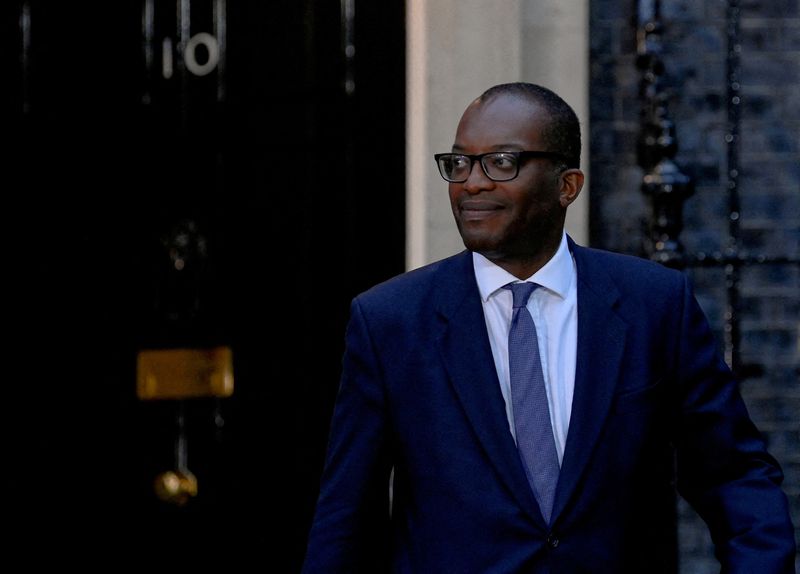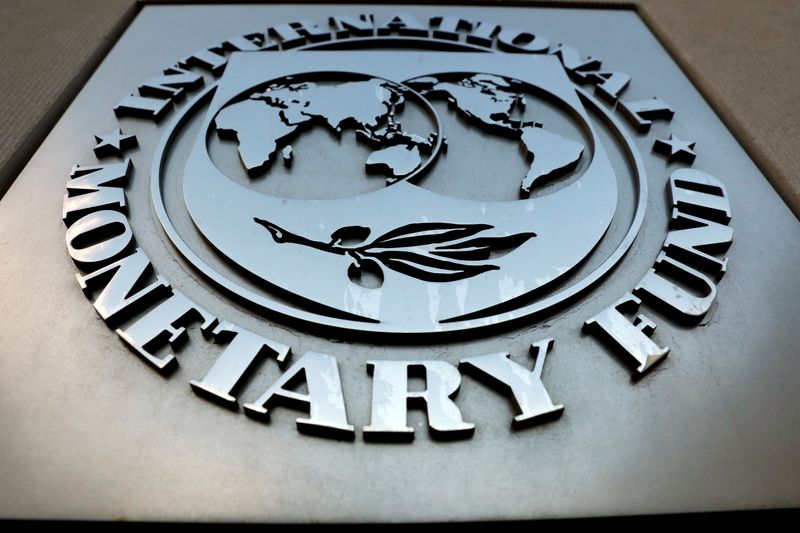By Andrea Shalal
WASHINGTON (Reuters) -The International Monetary Fund on Tuesday took aim at new British financial plans that have roiled markets, warning that "large and untargeted fiscal packages" would likely increase inequality in Britain and could undermine monetary policy.
In its first comments on plans by Britain's new finance minister Kwasi Kwarteng, which have sent sterling and bonds into free fall, the IMF urged UK authorities to consider providing more targeted support to families and business instead of sizable tax cuts and sharply higher government spending.
“We are closely monitoring recent economic developments in the UK and are engaged with the authorities," an IMF spokesperson said, in response to a query from Reuters after the British pound hit an all-time low amid spiking market concerns.
"Given elevated inflation pressures in many countries, including the UK, we do not recommend large and untargeted fiscal packages at this juncture, as it is important that fiscal policy does not work at cross purposes to monetary policy," the spokesperson said in the IMF's first public reaction.
Kwarteng, who on Friday unveiled a budget aimed at growing the economy by cutting taxes and sharply increasing government borrowing, responded to market mayhem by promising to roll out medium-term debt-cutting plans on Nov. 23.
The global lender understands that Britain's "sizable fiscal package" was intended to help residents deal with higher energy prices and to boost growth via tax cuts and supply measures, but such measures could put fiscal policy at cross purposes with monetary policy, the spokesperson said.
"The nature of the UK measures will likely increase inequality," it added.
Kwarteng's Nov. 23 budget would provide an "early opportunity for the UK government to consider ways to provide support that is more targeted and reevaluate the tax measures, especially those that benefit high-income earners,” the spokesperson added.

Britain was forced to apply for an IMF loan of nearly $4 billion during the 1976 financial crisis, with IMF negotiators insisting on deep cuts in public expenditure at the time.
IMF officials have warned repeatedly in recent months of the need to carefully calibrate fiscal and monetary policy as central bankers raise interest rates across the globe to get inflation under control.
